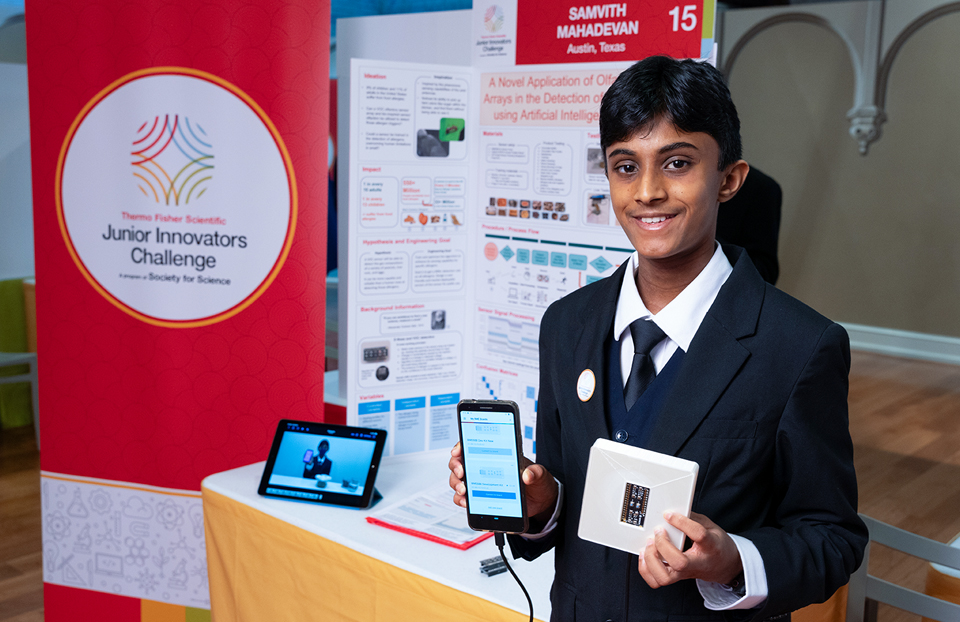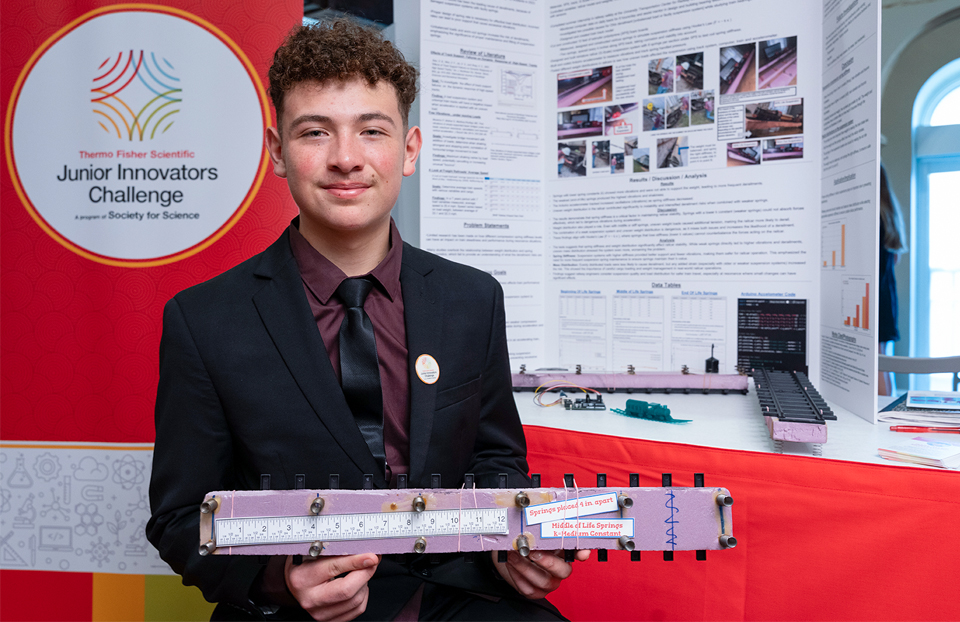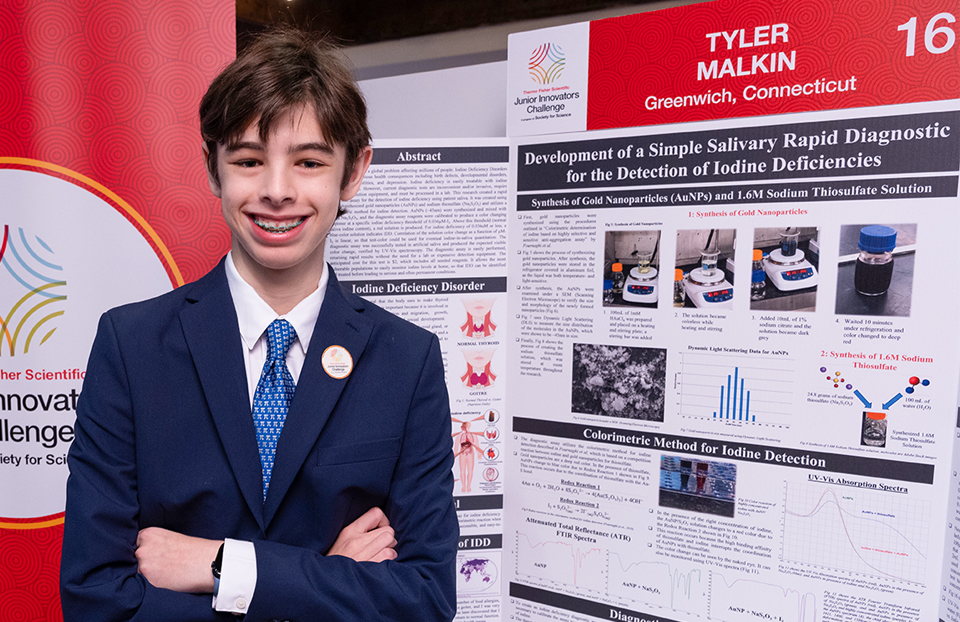Navigating Zombies: A health challenge for Thermo Fisher JIC finalists
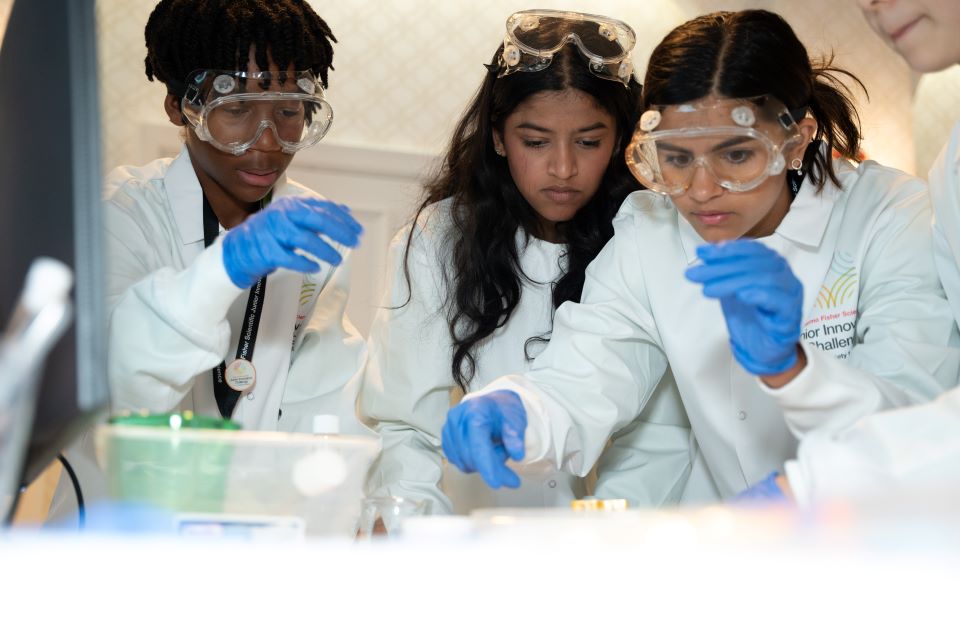
During the inaugural Thermo Fisher Scientific Junior Innovators Challenge (Thermo Fisher JIC), the top 30 finalists engaged in a variety of STEM challenges, organized into six teams. These challenges allowed the finalists to showcase their critical thinking, collaboration, leadership and problem-solving skills. The judges closely observed the participants during these challenges to assess their performance.
On Tuesday, October 31, Thermo Fisher JIC finalists began the day with a Halloween-themed challenge organized by JASON Learning, a Virginia-based nonprofit that provides STEM curriculum and learning experiences for K-12 students as well as professional development for teachers. The students had the opportunity to identify a simulated “Zombie virus” and determine how it was spreading through the fictional town of Screamersville before getting the chance to explain to the judges how they would address and contain the outbreak.
Rochelle Sandrin and Julie Richards of JASON Learning briefed the finalists on the initial outbreak before guiding them through the process of identifying the virus using gel electrophoresis. In true Halloween spirit, before getting into the samples, all finalists put on Thermo Fisher lab coats and safety goggles. The teams then set up their electrophoresis chamber using a gel, wire and batteries to run a charge through the sample, separating the DNA strands. By experimenting with different ways to use the tools they were given the teams were able to begin the electrophoresis, which would then run through the rest of the activity.
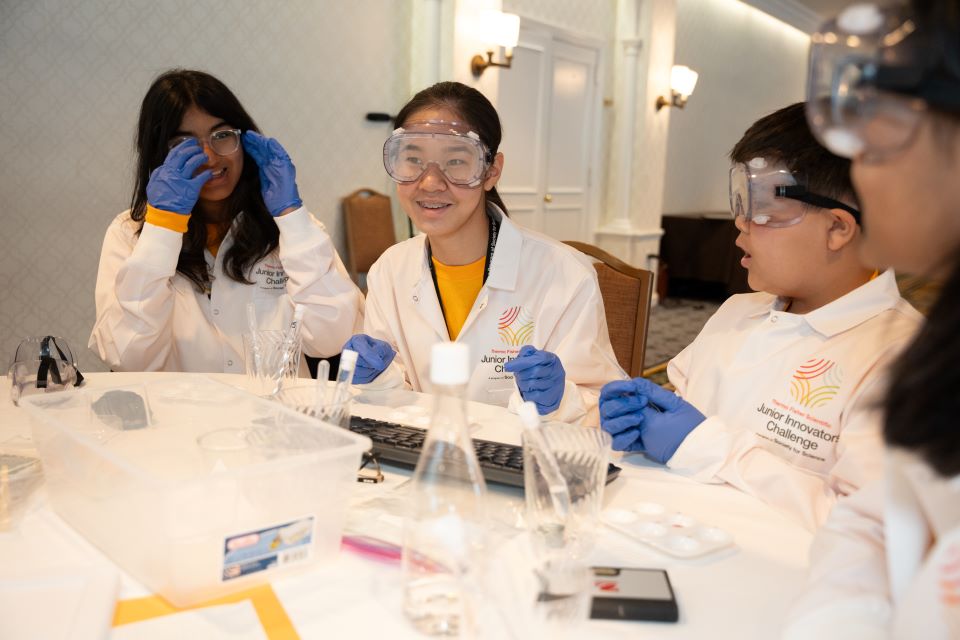
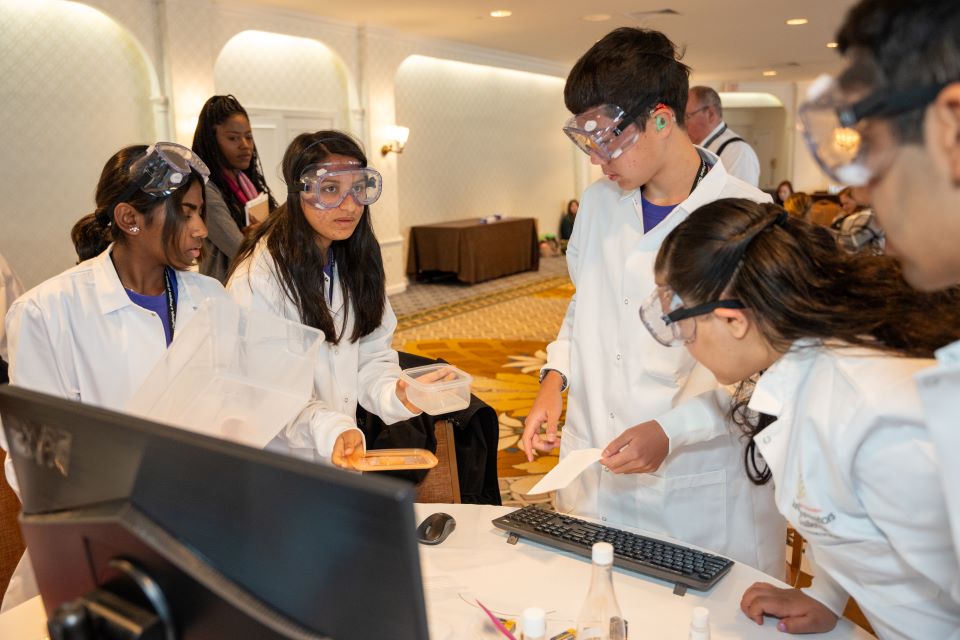
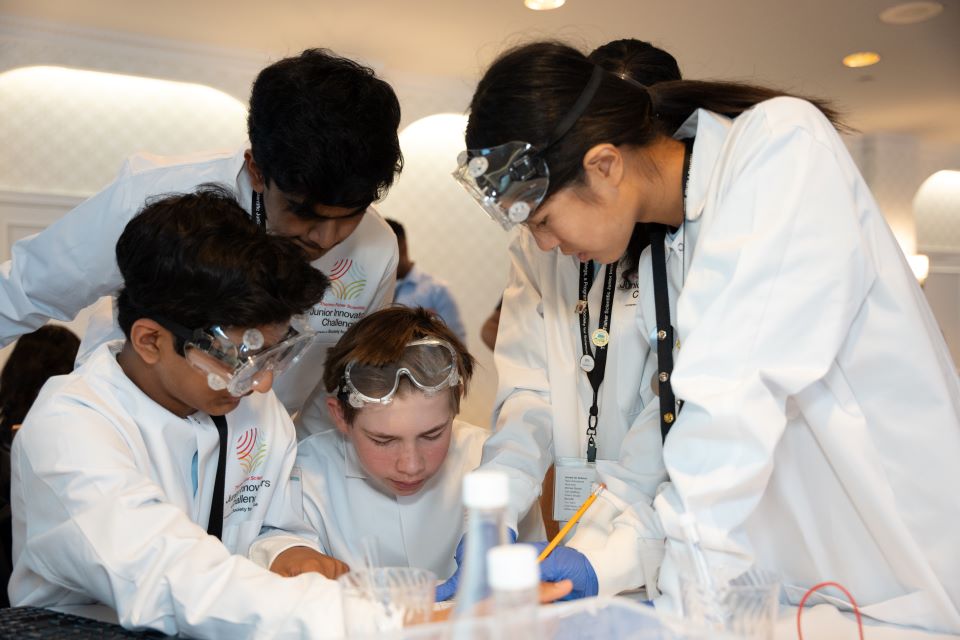
To implement strategies to mitigate the impact of the virus, the finalists needed to understand not only how the virus was spreading, but who in Screamersville was being impacted. The finalists collaborated to contact trace and identify patient zero, and then used these insights to begin analyzing the data available on various maps of Screamersville.
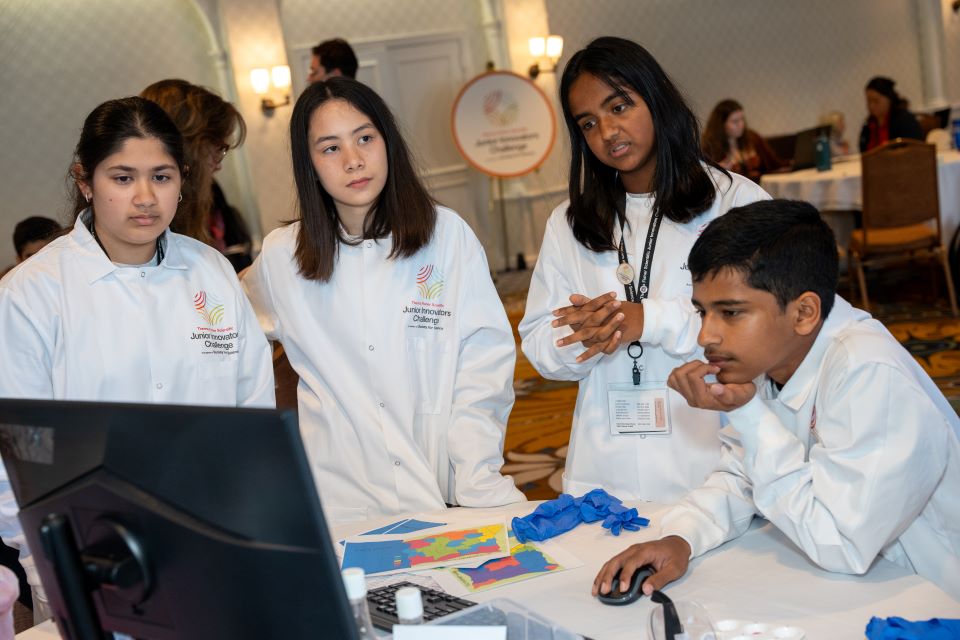
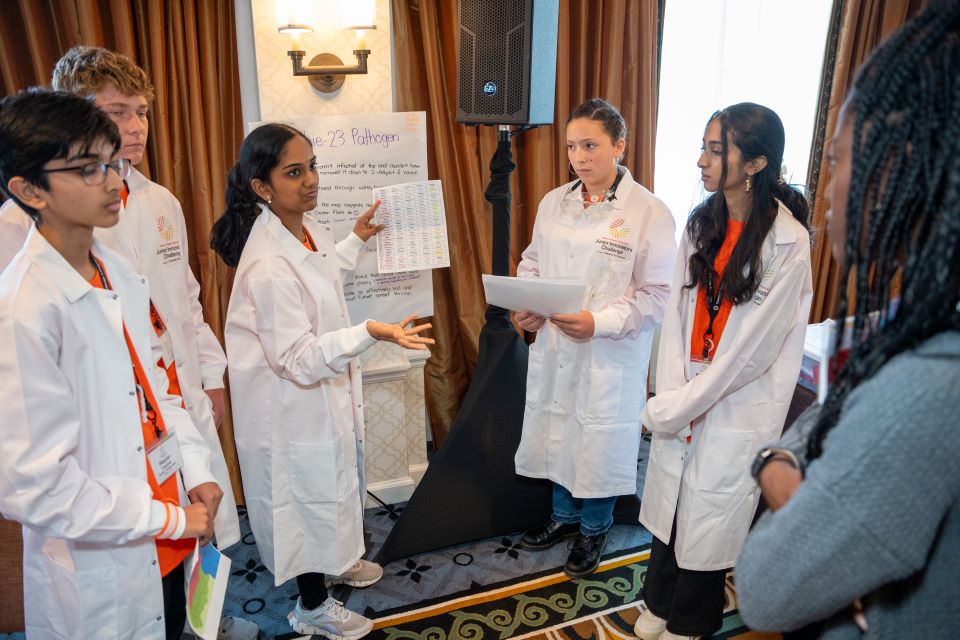
The gel electrophoresis revealed the nature of the Zombie virus, allowing the finalists to further understand its origins and examine its spread across lines of race, class, geography and housing. Using this data, and their newfound understanding of the social determinants of health, the teams then put together recommendations for the leaders of Screamersville to help mitigate the spread of the Zombie virus, as well as make sure it wouldn’t happen again.
All teams collaborated throughout the challenge, sharing knowledge, learning new skills and exploring exciting new ways of looking at the world. The Zombie virus challenge was a great opportunity for the students to explore how race, class and geography play a critical role in addressing scientific questions. Thanks so much to JASON Learning for facilitating such an amazing experience, and congratulations to the finalists for their great work and scientific exploration! This experience underscored the importance of considering diverse perspectives in order to effectively solve complex problems.
